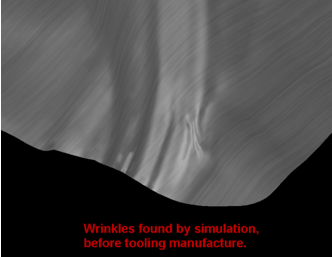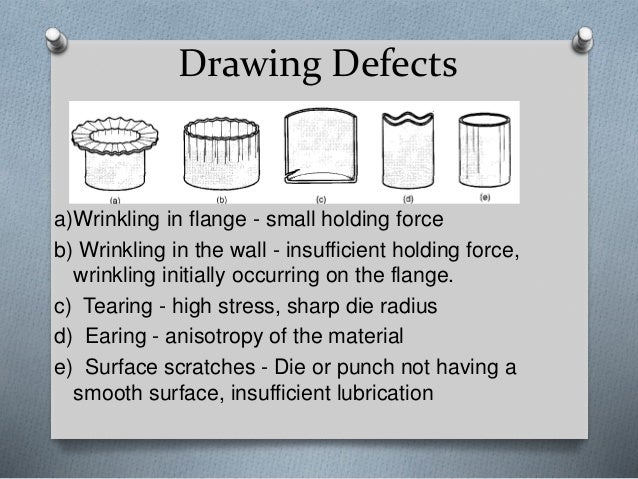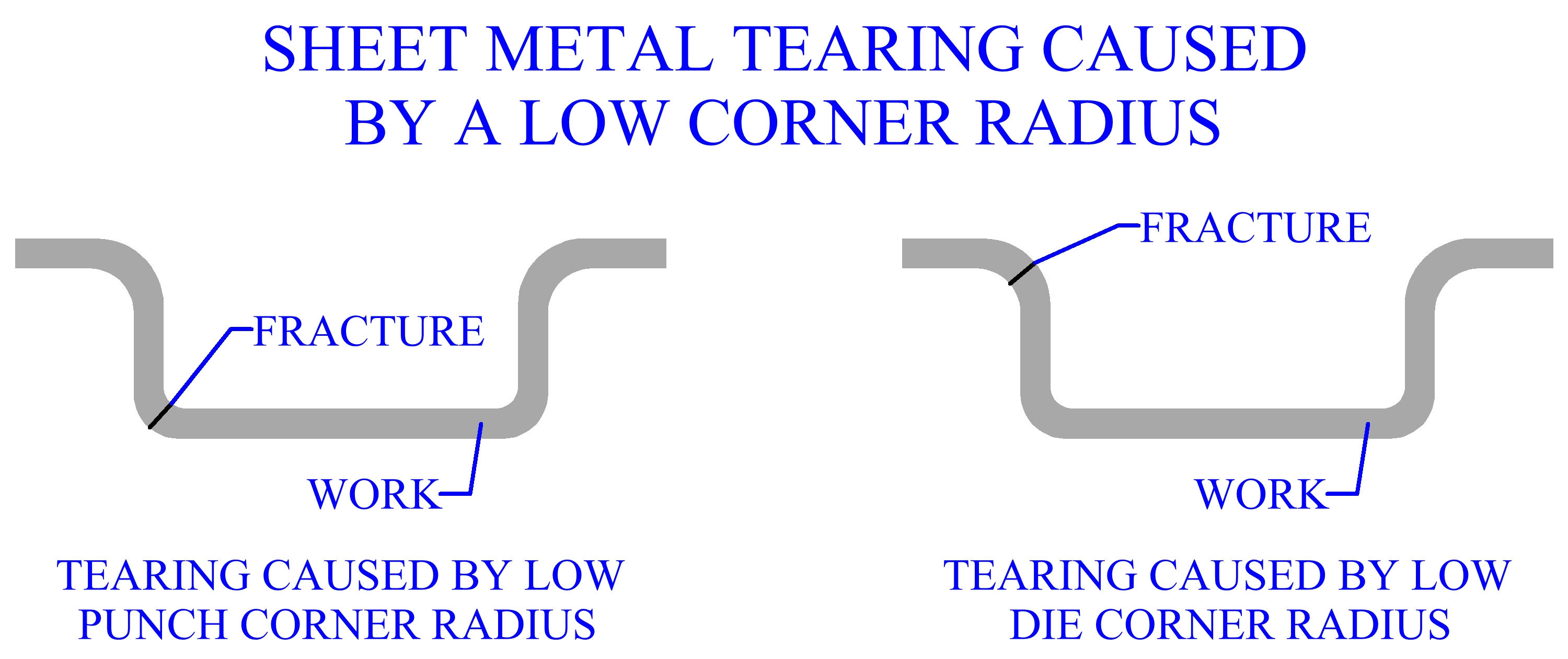Other drawing operation redrawing drawing without a blankholder not cylindrical cups defects wrinkling in the flange wrinkling in the wall tearing earing anistropy in sheet metal surface scratch.
Defects in sheet metal operation.
As a manufacturer who offer one stop service for customized parts we perform excellently in arena of sheet metal parts fabrication including bending roll forming deep drawing spinning and so on.
Sheet metalworkingforming on metal sheets strips and coils.
Defects in drawing wrinkling in the flange wrinkling in the wall tearing earing anistropy in sheet metal surface scratch.
Drawing forming a sheet into a hollow or concave shape.
Wrinkles splits and springback are the three most common defects.
In cutting operations is relatively small usually 3 to 8 of sheet metal thickness.
The flange of the blank undergoes radial drawing stress and tangential compressive stress during the stamping process which sometimes results in wrinkles.
Shearing not a forming process but a cutting process.
Mainly sheet metal process can be divided into three types.
Clearance in deep drawing manufacture is greater than sheet thickness usually clearance values are 107 to 115 of sheet thickness.
Bending straining of a metal sheet to form an angle bend.
The first one is sheet metal cutting second one is sheet metal bending or forming and the last one is known as deep drawing in this article we mainly focus on sheet metal cutting operations and other two we will discuss into upcoming articles.
Generally if experiencing wrinkles during production this could mean the wrong process was chosen.
The process is normally a cold working process using a set of punch and die.
One of the primary defects that occurs in deep drawing operations is the wrinkling of sheet metal material generally in the wall or flange of the part.
The rolling defects are mainly two types.
With the reliable technicians advanced equipment rigorous quality system rebond is committed to avoiding 6 defects in sheet metal forming.
The elastic deformation of mill takes place on the metal so some of rolling defects are provided in the metal forming.










